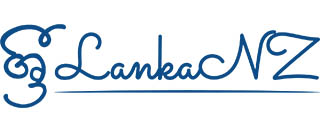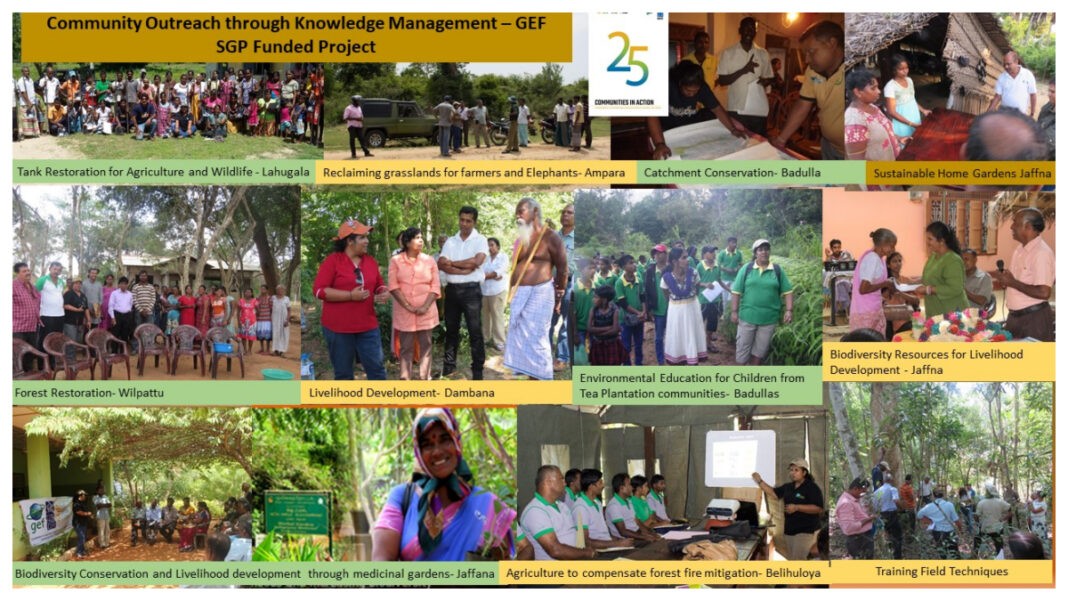Sri Lanka and the Western Ghats of India together make one of the global biodiversity hotspots with high biodiversity and endemism. The country attracts nature lovers from all over the world due to its rich wildlife, lush green forests, golden beaches, pristine rivers and waterbodies, and scenic beauty. Habitat to the world’s largest terrestrial animal, the Elephant, and the largest marine animal, the Blue Whale, the island is also identified as a top travel destination for wildlife tourism. The island is also facing many challenges in safeguarding nature. Considering the accelerating environmental damage and threats looming at large, every possible effort to safeguard the environment counts.
Much of the Earth’s biodiversity is in jeopardy due to human activities that disturb ecosystems. Deforestation and habitat fragmentation, pollution, climate change, invasive species, and overexploitation are threatening biodiversity. These threats have caused an unprecedented rise in the rate of species extinction and the loss of valuable ecosystem services. Conservation efforts are necessary to preserve biodiversity and protect endangered species and their habitats. Biodiversity conservation is a people’s function and can be achieved only through a sound understanding of the resources and active contribution.
Tropical Ecosystem Research Network (TERN) is a government-registered nonprofit organization in Sri Lanka, committed to biodiversity conservation and environmental protection, through research, training, conservation activities, advocacy, and facilitating sustainable utilization of natural resources.
TERN works with many local and international organizations to bring together knowledge and skills to implement specific tasks. Working in one of the most diverse and unique ecosystems on earth, we thrive to safeguard vulnerable wildlife and long-term support for local communities. Activities are undertaken in diverse forms that allow people to get involved in projects that match their interests. The expertise showcased includes knowledge management, capacity building, research & training in the field of Biodiversity Conservation, Ecosystem Management, and other forms of Environmental Conservation.
TERN was established in 2010 by Prof Enoka P. Kudavidanage, a conservation biologist affiliated with a Sri Lankan University, and Ravindra Amarasinghe, an IT engineer from a large conglomerate, who turned into a wildlife researcher. The core group membership consisting of many professionals and conservation practitioners has grown into a dynamic family over the years. TERN’s work experience over time includes research, training programs and field courses for students and professionals, community outreach programs, knowledge management, and capacity building for NGOs, CBOs & practitioners, etc The organization offers a challenging working environment and ideal opportunities for students and young professionals to gain experience. TERN guides local communities to solve environmental issues at the grassroots level, where mobilizing community-based conservation programs would bring sustainable economic benefits to stakeholders. The projects either are initiated and implemented by TERN, or designed and tailor-made for collaborative partners, and conducted within the legal limits, regulations and ethical requirements of the sector.
TERN conducts and supports projects to conserve and protect wildlife while engaging stakeholders in finding effective and viable solutions to protect the natural environment. The research conducted falls within the scope of Conservation Biology. TERN functions as a facilitative platform for scientists, students, professionals, and practitioners to conduct independent or collaborative research. TERN acts as a mediator to secure provisions and support from experts for small-scale independent conservation projects, and facilitate research networking. Currently, we have several ongoing research in the wildlife sector. One of our main objectives is to bridge the gap between researchers and practitioners where key research needs of the conservation sector are identified and communicated to the researchers while transferring research knowledge to practitioners to promote applications. Some of the ongoing projects.
- The Leopard Conservation and Ecology Project (LeoCEP) in selected protected areas and agricultural landscapes (in collaboration with the National University of Singapore/ Prof. Edward Webb)
- The Dung Beetle project (Taxonomy, Monitoring Tools, Ecosystem Services)
- Monitoring Protected Areas for management options and wildlife crimes
- Buddhism and Biodiversity Conservation – documenting the contribution of temple forests for biodiversity conservation in the Human Dominated Landscape
- Facilitating sustainable agriculture through awareness development
The training programs conducted by TERN are tailor-made for the specific requirements of the interested groups and arranged upon request. The focal groups include local and international students, professionals expecting selected training (i.e Camera trapping ), and community members (i.e Farmer training on conflict mitigation) This includes field visits and lectures as per preference. These training sessions are conducted in different parts of the island including wildlife and forest protected areas, institutes, and locations relevant to chosen areas of interest and our field stations, and include dissemination of hands-on experience in the area of interest and interactive discussions with experts. We hope to equip trainees with skills and knowledge that will be helpful in the successful implementation of conservation activities.
Some of the training programmes/workshops conducted by TERN to date are,
- Ecology, Conservation, and Management of Sri Lankan Ecosystems for the undergraduates of the National University of Singapore (2-3 weeks residential program)
- Exploring Human-wildlife conflict and culture – (2-3 weeks residential program for the Undergraduates of the University of Western Australia)
- Human Elephant Conflict Management- (2 weeks experience sharing program for the Forest Department of West Bengal)
- Field technique programs for Sri Lankan undergraduates and Conservation Professional
- Conservation education programs for school children
The knowledge management platform allows TERN to Act as a mediator in local projects focused on conservation. Through this, we ensure high-quality results and measurable impacts from funded projects in Sri Lanka. The core objectives of this focus area are to support the implementation and monitoring process of funded projects while ensuring desired results and impacts from grantee projects. We also enable mainstreaming and replication of implemented best practices through knowledge production and sharing on a wide platform. We have successfully served as a Knowledge management team for the UNDP/ GEF Small grants program.
By Prof. Inoka Kudavidhanagamage – Sri Lanka
Contact: ternlanka@gmail.com, enokakudavidanage@gmail.com.
Whatsapp: +94714750948








